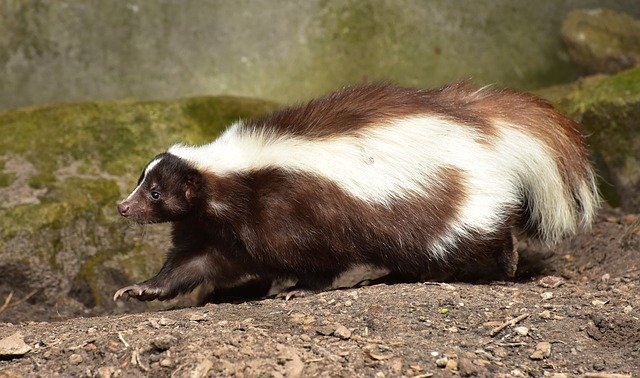When you think of home damage, you might think of wind, rain, or earthquakes. Although these are all potential elements of home damage, they’re definitely not the only things that you need to think about when it comes to home damage. Pests can actually cause even more damage than Mother Nature. Here’s an overview of some of the more common animals that can cause damage to your home.

Which Animals Cause the Most Damage to Your Home Created By: Ohio Basement Systems
- Skunks
Typically, the biggest problem with skunks is the smell. That’s because if a skunk gets near your crawl space or basement and sprays, the small can permeate the drywall and even get into your HVAC system, leaving its mark for months.
- Rodents
If you’re worried about one animal in your home, chances are that it’s rodents. Mice and rats can build nests under your home, damage your foundation, leave droppings all over the place, and even chew through walls and electrical wiring.
- Snakes
Snakes can get into extremely small areas of your home. If you live in an area where venomous snakes live, you run the risk of accidentally inviting a venomous snake into the area under your home. Plus, they can attract larger predators that attempt to eat them.
- Raccoons
Raccoons are extremely mischievous, and while that can be fun to watch at the zoo, it’s substantially less fun to watch in your home. They love to tear up insulation, damage your home’s electrical wiring, and even leave droppings all over the home.
- Bears
Issues with bears are rare enough that they tend to be the basis of news stories on slow news days in rural towns, but they do happen every so often. Most often, bear problems around a home won’t be dangerous; they’re typically just looking for easy food, which they’ll typically find in your trash cans.
- Deer
In less urban areas, deer can sometimes become comfortable enough around people to move in toward the homes. In this situation, you could end up with problems because deer are also very skittish. A deer could, for example, attempt to ram into a door if it sees its reflection.
- Squirrels
Squirrels are so small that it’s typically very easy for them to get into the home – they can crawl in through the chimney or ductwork. As with rodents, squirrels can make nests in the home, damage your electrical wires, and spread droppings throughout the area under your home.
- Chipmunks
Chipmunks and squirrels are very similar in many ways; chipmunks, however, tend to prefer to sneak into the house through gaps in your foundation. It’s also more common for chipmunks to try to burrow, leading to holes in and around the home.
- Groundhogs
Because groundhogs burrow so well, they can create huge tunnels underneath your home. These tunnels, which can be up to 45 feet long, can eventually lead to foundation failure if you don’t catch them.
- Pigeons
Pigeons are a common sight in and around urban areas. However, it’s typically not a good idea to let pigeons build their nests on your roof, as it can lead to the nests blocking your home’s gutters and drainage.
- Bats
The biggest potential problem with bats is the fact that they will leave droppings all over. This can damage your home’s wood, attract bugs, and even spread parasites or disease.
- Woodpeckers
If you’re having problems with woodpeckers, it’s probably because you have insects in your home. Woodpeckers don’t just drill into wood for no reason; they do it because they’re looking for food, which means woodpecker problems are typically indicative of insect problems.
- Vultures
Though they’re very uncommon, it is possible to have issues with vultures in some areas of the United States. They tend to cause damage to vinyl and plastic.
Conclusion
Managing pest problems in your home is one of the most important things you can do to avoid having these pests completely take over your crawl space. If you see pests, don’t wait – manage them as early as possible so that you can avoid having those problems develop into something much worse.







Recent Comments